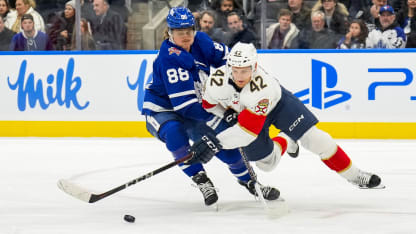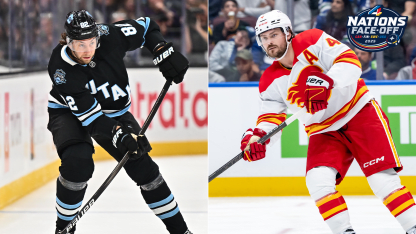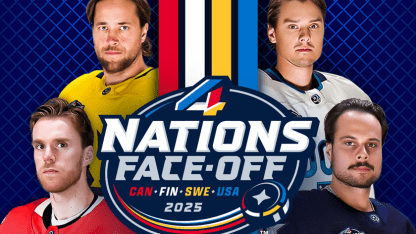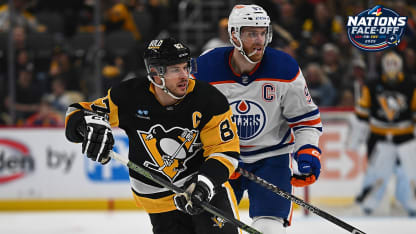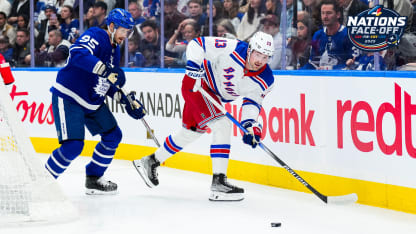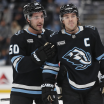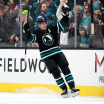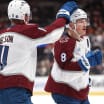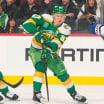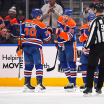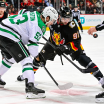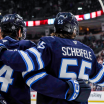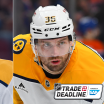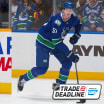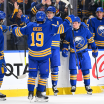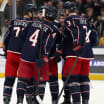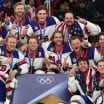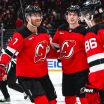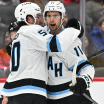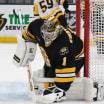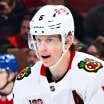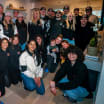NHL.com staff writer Mike Zeisberger has been covering the NHL regularly since 1999. Each Monday he will use his extensive network of hockey contacts for his weekly notes column, "Zizing 'Em Up.”
TAMPA -- With all the hype swirling around Canada and the United States heading into the 2025 4 Nations Face-Off from Feb. 12-20, is Sweden, led by Victor Hedman, being overlooked, let alone disrespected?
If that's the case, they shouldn't be.
So says Sweden coach Sam Hallam, who recently completed a scouting tour in North America in a search for candidates to fill out the Tre Kroner roster.
"I think the whole field is open," Hallam told NHL.com from Sweden. "Every team is bringing in high-quality players. Every team has a 25 percent chance. You play each team once. It's not a playoff series.
"You look at Finland. They come in with a fabulous top end led by Aleksander Barkov. Everyone has top-end players, including us, who can dominate a game any night.
"I don't think any team is intimidated, including us. We are coming into this thing with the goal of winning it. Nothing less."
The 4 Nations Face-Off will be the first best-on-best tournament since the World Cup of Hockey 2016. Each team will play one another once in a round robin, with the top two then playing a one-game final at TD Garden in Boston on Feb. 20.
Sweden named its first six players in the spring: defensemen Hedman (Tampa Bay Lightning), Erik Karlsson (Pittsburgh Penguins) and Gustav Forsling (Florida Panthers), and forwards William Nylander (Toronto Maple Leafs), Filip Forsberg (Nashville Predators) and Mika Zibanejad (New York Rangers). The players filling out the remainder of the roster spots will be named in early December.
Who are the leading candidates?
In a wide-ranging chat this past week, Hallam discussed how a player like Calgary Flames defenseman Rasmus Andersson has put himself on the radar, what Sweden's goaltending could look like, and how the gold medal-winning team from the 2006 Turin Olympics continues to be an inspiration for modern-day Swedish players.
First off, who have you seen in your recent scouting trip that caught your eye as potential members of the team?
"Andersson (10 points; four goals, six assists in eight games), I mean, as a right-handed D-man, he's been good for many years now. He's going to get his points too. He's maybe a bit different mentality-wise than a lot of other Swedes, a bit more intimidating in a good positive way. Then there's (New Jersey Devils goalie) Jacob Markstrom (3-3-1, 3.15 goals-against average, .891 save percentage). He felt really comfortable when I met with him before the season. He feels like he's in a good place both on and off the ice. Young Leo Carlsson (five points; three goals, two assists in seven games for the Anaheim Ducks), he's shown he can dictate play by the way he skates through the neutral zone."
With a core of Hedman, Karlsson and Forsling, the blue line would appear to be the backbone of your team. Would you agree?
"I think our defense is a very strong position on our team. We have a lot of good names to pick from. It's about us trying to be as prepared as possible, how we pair them, how we use them, who we want to play them with."
How do you foresee the depth of your team?
"Canada and the U.S., they have more depth. They can choose from more players, but I think we're pretty even when we pick our first 20 guys there. It all depends how you use them and how prepared you are."
Unlike the Stanley Cup Playoffs, this tournament comes down to one game versus each opponent, much like you find in the knockout round at a IIHF World Championship or IIHF U-20 World Junior competition. What kind of mindset do you have to have in this format?
"System-wise, we try to build something that maximizes our opportunity to win. Normally, in a league environment, you are building a group over a full season. You are building on things that you know are going to pay dividends over time coming into the playoffs. This is different. This is about what we can do over 60 minutes. This is about optimizing the game setup without the scouting info you have if you'd played the opponent before, or about the knowledge about yourself and your team that gets built up over a regular season. So in this case, it comes down to having a Game 7 mentality and being brave enough to make the smart decisions at the right time."
Before being named coach of the Swedish national team in 2022, you coached the Vaxjo Lakers to three championships in the Swedish Elite League (2015, 2018, 2021). How would you describe yourself as a coach?
"It's always hard to look back at yourself. I would say I'm a very focused person. Maybe a bit boring. I like to be well prepared and stay focused, and that's why sometimes I can seem to be pretty calm. Maybe that's just a case of being pretty focused. I'm always thinking of how we can improve, even during a game, and if someone else comes up with a good idea to help us win, I'm glad to take that and support that idea."
Who was your hockey idol growing up?
"I was a couple of years younger than Peter Forsberg, so I followed him all the way from when he came up to the Swedish League and then through the NHL, so I would say Peter Forsberg was the one I followed and admired."
Finally, Forsberg was on the 2006 gold medal-winning team at the Turin Olympics that still stands as the most memorable Sweden team in modern history. What kind of influence did that team have on you and, in fact, the present-day Swedish players to this day?
"I think most of us are never going to forget that. I can still go through in my mind the winning goal in the gold-medal game against Finland. Forsberg to Mats Sundin to (Nicklas) Lidstrom to put Sweden up 3-2. Then Henrik Lundqvist making some fantastic saves to keep it that way. That's how it ended. Interestingly, when the Olympics go to Milan in 2026, it will be the 20th anniversary of that great moment."
